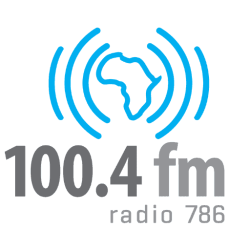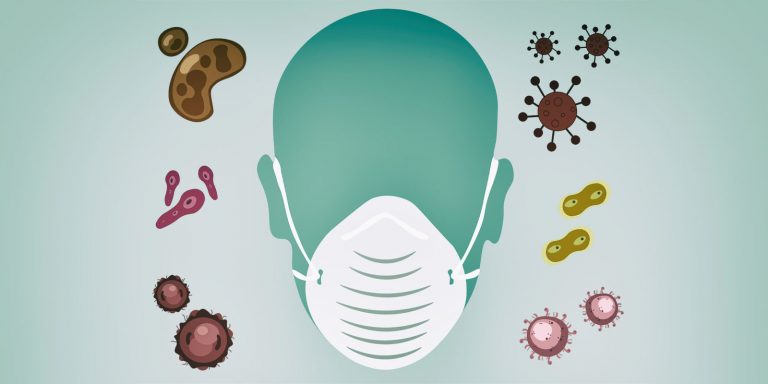South Africa is registering a daily increase of Covid-19 cases, largely suspected to be linked to the detection of the Omicron variant. While little is known about the discovery, health scientists believe it to be higher in transmissibility and much less severe in disease than previously identified variants.
Many patients have reported mild symptoms, largely described by experiencing body aches and headaches.
Here is a reminder on what to do should you be infected with Covid-19, as sourced by the Islamic Medical Association of South Africa.
SYMPTOMS:
• Flu-like symptoms are the easiest way to suspect a possible infection.
• The coronavirus is usually self-limiting, and the treatment is aimed at building your immune system to fight the virus and to help manage your symptoms.
• Take vitamins.
• Steaming with boiling water and a vapourub helps with your tight chest. Drinking warm water with lemon and honey may relieve the coughing.
• Follow the other symptomatic treatment that your medical practitioner prescribed.
• Please call your GP, if your symptoms are worsening and they will advise you on further management.
ISOLATION:
• You should go into isolation IMMEDIATELY.
• If you are symptomatic and the other household members are asymptomatic (no symptoms) then you should isolate separately.
• Do not move out of this space for 14 days.
• There should be minimal interaction with the rest of your household members.
• If this is difficult, all people in the house should wear masks for 14 days and you should keep a 2m distance from the other household members.
BATHROOM:
If there is one bathroom in the house, then when you need to use the bathroom:
• The family members should be away from the bathroom.
• You should wear a mask and a shield.
• The toilet seat and basin should be sanitised by you with soap and water, a 70% alcohol-based sanitiser or a Jik solution before and after using the toilet and basin.
• The Jik solution can be made as follows: Add 1 part of the 3.5% Jik to 6 parts of water. This can be used to sanitise the surfaces.
• Toilet seat should be closed prior to flushing.
• Wash your hands with soap and water for 20 seconds.
• All toiletries should be in a closed cupboard.
If all household members are symptomatic, then all the household members can isolate together within the same house. No visitors should be allowed to the house.
SANITISING:
• Practice good hygiene by washing your hands frequently with soap and water for 20 seconds or with a minimum 70% alcohol-based sanitiser.
• When sneezing and coughing, cough / sneeze into a tissue which should immediately be discarded in a dedicated bin bag. All high touch surfaces should be cleaned with an alcohol- based sanitiser or the Jik solution.
MEALS:
• Food should be left at the door of the isolation room, preferably in polystyrene / paper plates and cups, which can be discarded. A packet should be left outside of your room to discard this.
• You can wear a mask and dispose of these items in the opened bin packet left outside your room, being careful not to touch the outside of the packet. If this cannot be done, the utensils should be thoroughly washed with soap and hot water. A bucket can be kept outside the room with boiling water of more than 61°C. You can gently place your utensils in this bucket and let it soak for 24 hours before it can be taken to be cleaned with soap and water.
• Diet: Your diet should comprise of healthy foods such as green leafy vegetables, fruits such as citrus fruits and apples and protein from meat, chicken or fish.
• Hydration: Drink a minimum of 6 to 8 glasses of water a day. The elderly tends to drink less. Make a one litre rehidrat® solution. They should drink small amounts of the solution throughout the day.
The following symptoms should be closely monitored:
• Increased shortness of breath
• Increased tiredness, increased body pain/chest pain. Increased temperature
• Increased heart rate
• The oxygen reading on the oximeter shows in percentage. If it is ≤92%, call your medical practitioner.
• If your heart rate is greater than 100.
• The oxygen reading and heart rate values may differ for different individuals, therefore consult with your medical practitioner.
Your medical practitioner will give you a symptom log. Please fill it in diligently, it will help with quick and effective management.
MENTAL HEALTH:
• This may be a difficult time in your life.
• The body pains and headaches may be excruciating and may affect your mental health, take your painkillers that the doctor prescribed to alleviate these symptoms.
• If you have a mental illness, do not forget to take your medication on time.
• Video call family and friends.
• Read books.
• Restrict media and social coverage to prevent it from becoming overwhelming.
• Download a game on your phone to keep you occupied.
• If safe to do so and without placing others at risk, try and get some fresh air.
• If you feel you need to help yourself, you can always call SADAG 24-hour mental health helpline on 0800 456 789 or whatsapp 076 882 2775,









